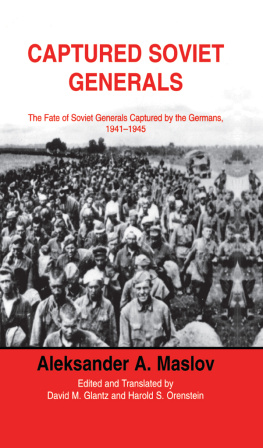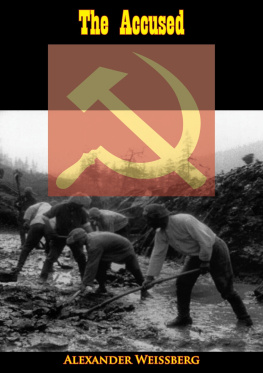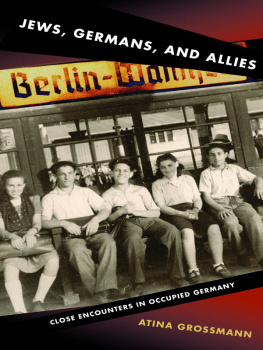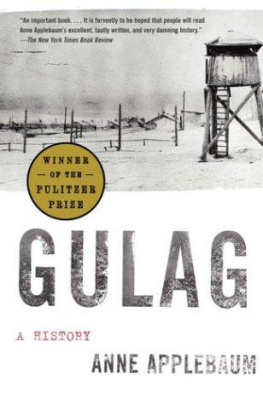Suppressed Terror
The Harvard Cold War Studies Book Series
Series Editor: Mark Kramer, Harvard University
The Cold War after Stalins Death: A Missed Opportunity for Peace?
Edited by Klaus Larres and Kenneth Osgood
Mao and the Economic Stalinization of China, 19481953
Hua-yu Li
The Eisenhower Administration, the Third World, and the Globalization of the Cold War
Edited by Kathryn C. Statler and Andrew L. Johns
Stalin and the Cold War in Europe: The Emergence and Development of East-West Conflict, 19391953
Gerhard Wettig
Eisenhower and Adenauer: Alliance Maintenance under Pressure, 19531960
Steven Brady
The Prague Spring and the Warsaw Pact Invasion of Czechoslovakia in 1968
Edited by Gnter Bischof, Stefan Karner, and Peter Ruggenthaler
China Learns from the Soviet Union, 1949Present
Edited by Thomas P. Bernstein and Hua-yu Li
Globalizing de Gaulle: International Perspectives on French Foreign Policies, 19581969
Edited by Christian Nuenlist, Anna Locher, and Garret Martin
Solidarity with Solidarity: Western European Trade Unions and the Polish Crisis, 19801982
Edited by Idesbald Goddeeris
Stalin and the Turkish Crisis of the Cold War, 19451953
Jamil Hasanli
Securing the Communist State: The Reconstruction of Coercive Institutions in the Soviet Zone of Germany and Romania, 19441948
Liesbeth van de Grift
Solidarity: The Great Workers Strike of 1980
Michael Szporer
Imposing, Maintaining, and Tearing Open the Iron Curtain: The Cold War and East-Central Europe, 19451989
Edited by Mark Kramer and Vt Smetana
The Vienna Summit and Its Importance in International History
Edited by Gnter Bischof, Stefan Karner, and Barbara Stelzl-Marx
The Legacy of the Cold War: Perspectives on Security, Cooperation, and Conflict
Edited by Vojtech Mastny and Zhu Liqun
Suppressed Terror: History and Perception of Soviet Special Camps in Germany
Bettina Greiner
Suppressed Terror
History and Perception of Soviet Special Camps in Germany
Bettina Greiner
LEXINGTON BOOKS
Lanham Boulder New York Toronto Plymouth, UK
Published by Lexington Books
A wholly owned subsidiary of Rowman & Littlefield
4501 Forbes Boulevard, Suite 200, Lanham, Maryland 20706
www.rowman.com
10 Thornbury Road, Plymouth PL6 7PP, United Kingdom
2010 by Hamburger Edition HIS Verlagsges.mbH, Mittelweg 36, 20148 Hamburg, Germany
Originally published as Bettina Greiner, Verdrngter Terror. Geschichte und Wahrnehmung sowjetischer Speziallager in Deutschland, Hamburg: Hamburger Edition 2010.
The translation of this work was funded by Geisteswissenschaften InternationalTranslation Funding for Work in the Humanities and Social Sciences from Germany, a joint initiative of the Fritz Thyssen Foundation, the German Federal Foreign Office, the collecting society VG WORT and the Brsenverein des Deutschen Buchhandels (German Publishers & Booksellers Association).
English translation copyright 2014 by Lexington Books
All rights reserved . No part of this book may be reproduced in any form or by any electronic or mechanical means, including information storage and retrieval systems, without written permission from the publisher, except by a reviewer who may quote passages in a review.
British Cataloging in Publication Information Available
Library of Congress Cataloging-in-Publication Data
Greiner, Bettina.
[Verdrngter Terror. English] Suppressed terror : history and perception of Soviet special camps in Germany / Bettina Greiner.
pages cm. (The Harvard Cold War studies book series)
Includes bibliographical references and indexes.
ISBN 978-0-7391-7743-3 (cloth : alkaline paper) ISBN 978-0-7391-7744-0 (electronic) 1. Political persecutionGermanyHistory20th century. 2. Political persecutionGermany (East)History. 3. Political violenceGermany (East)History. 4. Concentration campsGermany (East)History. 5. Detention of personsGermany (East)History. 6. State-sponsored terrorismGermany (East)History. 7. Germany (East)Politics and government. 8. State-sponsored terrorismSoviet UnionHistory. 9. World War, 1939-1945Prisoners and prisons, Soviet. 10. Collective memoryGermany. I. Title.
JC599.G3G74413 2014
365'.450943109044dc23
2014004387
 The paper used in this publication meets the minimum requirements of American National Standard for Information SciencesPermanence of Paper for Printed Library Materials, ANSI/NISO Z39.48-1992.
The paper used in this publication meets the minimum requirements of American National Standard for Information SciencesPermanence of Paper for Printed Library Materials, ANSI/NISO Z39.48-1992.
Printed in the United States of America
In memory of
Erika von Prittwitz
und Gaffron
(19072001)
Preface to the English Edition
How do we as Germans acknowledge the traumas and sufferings of Germans who are suspected of having been perpetrators or at least tacit supporters of the Nazi regime? What is their status in a society of perpetrators? How do we address their experiences, especially in relation to the unprecedented crimes perpetrated by Germans during the World War II? Such questions are at the heart of this study about the special camps established in the Soviet Occupation Zone at the end of the war and administered by the Soviet NKVD secret police. I hope that this investigation into the history of these camps and of their public commemoration after they were closed in 1950 will contribute to a debate that was the focus of renewed interest in Germany after the demise of East German Communism and the reunification of the country in 19891990. With Cold War strictures gone, a seemingly long forgotten past was literally unearthed. The discovery of mass graves near the former camp sites ignited a heated debate about the appropriate way to come to terms with a history of extreme violence and mass murder in which the Germans were not only perpetrators but also victims. Surprisingly, both academic and public discussion about the special camps has subsided since the early 1990s. Today, the German culture of remembrance, especially as it pertains to the special camps, is shaped to a large extent by the memorial sites at the former camps.
The most recent example concerns the memorial Leistikowstrasse in Potsdam, which was officially opened to the public in April 2012. This former pretrial detention site near Cecilienhof Palacethe site of the Potsdam Conference in August 1945was run by the Red Armys counterintelligence service, the SMERSH, and later by the Soviet Ministry of Security (MGB), which in 1954 was renamed the KGB. From 1945 to 1955 the Leistikowstrasse camp was for countless German civilians the first step on their way either to prisons and camps in the Soviet Union or to the special camps in the Soviet Occupation Zone. The memorial stands out for its harrowing authenticity, as the former grand villa was used as a prison until the mid-1980s and has not been renovated since the remnants of the Soviet Army withdrew in 1994. Leistikowstrasse, in other words, is a singular historical site, unique also in comparison to similar places in Eastern Europe. Whoever defines the historical interpretation presented at Leistikowstrasse has an irreversible impact on the German culture of remembrance and on the question of how to acknowledge the entangled history of perpetrators and victims. At the memorial site Leistikowstrasse, an astonishing approach has been chosen. The memorial opened its doors with an exhibition about Soviet political persecution and incarceration in Germany that offered almost no information about the Gulag and the Stalinist judiciary system. It is important to note that this one-sided interpretation that leaves out the Soviet context is not a matter of chance or a simple oversight. Apparently, it is an attempt to circumvent the perceived pitfalls of the German culture of remembrance and charges that German crimes might be diminished if the inhumanity of others is addressed.
Next page








 The paper used in this publication meets the minimum requirements of American National Standard for Information SciencesPermanence of Paper for Printed Library Materials, ANSI/NISO Z39.48-1992.
The paper used in this publication meets the minimum requirements of American National Standard for Information SciencesPermanence of Paper for Printed Library Materials, ANSI/NISO Z39.48-1992.